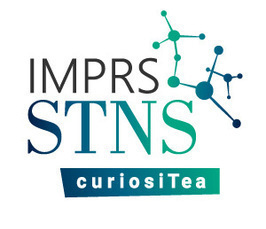Building platforms for extracellular electrophysiology
Tutorial
- Date: Feb 3, 2021
- Time: 05:00 PM - 06:00 PM (Local Time Germany)
- Speaker: Josh Siegle
- Allen Institute, Seattle, USA
- Location: Max-Planck-Institut für Mikrostrukturphysik, Weinberg 2, 06120 Halle (Saale)
- Room: Online
- Host: IMPRS-STNS

Abstract
Progress in neuroscience depends on novel technologies as much as groundbreaking ideas. "Platforms" that integrate multiple technologies into a cohesive framework make it easier to test new theories of the brain by (1) promoting the reuse of modular components that adhere to open standards and (2) facilitating more reliable, reproducible science.
The sub-field of extracellular electrophysiology, or "ephys"—in which a wide range of implantable devices are combined with an endless array of behavioral manipulations—would benefit from more widespread adoption of shared platforms aimed at reducing the amount of redundant development effort required to get new experiments off the ground.
Open Ephys (https://open-ephys.org) is an initiative focused on advancing our understanding of the brain by promoting community ownership of the tools used to study it. Open Ephys distributes and supports a complete open-source platform for multichannel electrophysiology, including low-cost hardware for amplifying and digitizing neural signals, as well as flexible software for visualizing, processing, and recording data. Unlike other platforms in this domain, Open Ephys takes advantage of a distributed development model—the Open Ephys GUI has over 40 contributors, with dozens of user-generated plugins available. One of the first applications of this platform was a causal demonstration that encoding and retrieval operations occur at unique phases of the mouse hippocampal theta oscillation, a result which has recently been corroborated through independent experiments in both rats and humans.
The Allen Brain Observatory represents another type of platform, which allows theories of neural function to be tested within a state-of-the-art centralized facility, with all data made freely available to the community. It consists of standardized operating procedures, experimental hardware, and quality control steps used to run diverse in vivo physiology experiments in a high-throughput, highly repeatable manner. The Allen Brain Observatory includes both two-photon imaging and ephys pipelines, the latter of which uses Neuropixels, a novel silicon probe capable of recording spiking activity from many brain regions simultaneously. In October 2019, the first ephys dataset was publicly released, consisting of spike trains from nearly 100,000 neurons recorded by the Open Ephys GUI (https://allensdk.readthedocs.io/en/latest/visual_coding_neuropixels.html).
A number of key scientific findings are beginning to emerge from this dataset, including a detailed understanding of how information flows across the hierarchy of mouse visual areas.
Bio
Josh Siegle is an Assistant Investigator in the MindScope Program at the Allen Institute, where he spearheaded the development of the Neuropixels electrophysiology pipeline. He received his PhD in Neuroscience from MIT, where he studied hippocampal circuits with Matthew Wilson and cortical and thalamic circuits with Christopher Moore. In addition to his scientific work, Josh has been heavily involved in the design and distribution of open-source tools for electrophysiology, co-founding Open Ephys with Jakob Voigts in order to coordinate development efforts occurring across the community. Josh has also carried out research at the Max Planck Institute for Biological Cybernetics and Brown University, where he earned an Sc.B. in Neuroscience.
Zoom access (please access meeting 5 minutes prior to the start) | Meeting ID: 985 7374 6016 | Passcode: 440829